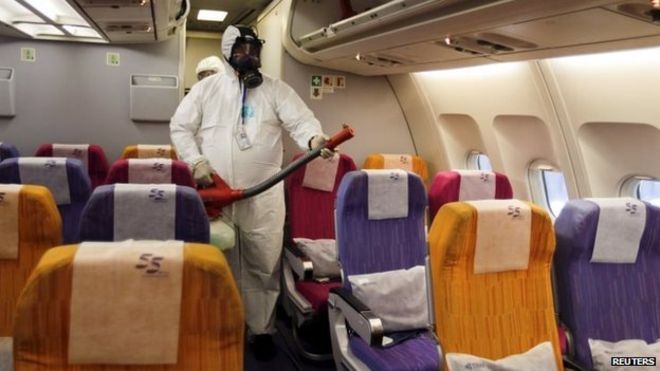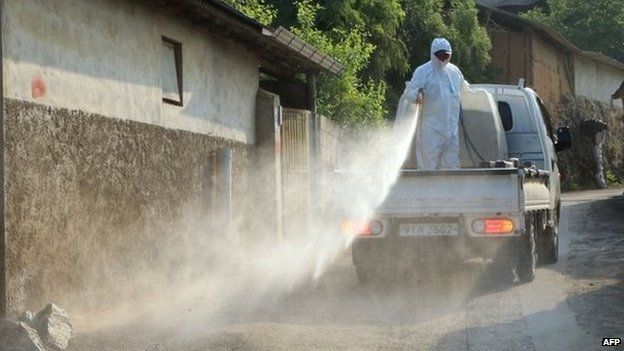 Thailand has confirmed its first case of Middle East Respiratory Syndrome (Mers), the deadly virus that has killed 24 people in South Korea.
Thailand has confirmed its first case of Middle East Respiratory Syndrome (Mers), the deadly virus that has killed 24 people in South Korea.
The man - whose name has not been released - is now in quarantine at an infectious diseases facility outside the capital Bangkok.
Thai health officials said the 75-year-old from Oman was seeking treatment for a heart problem in Bangkok.
Nearly 60 people who came into contact with the patient have been identified.
That includes three relatives who travelled with him on the plane.
Thailand is a medical tourism hub, popular with patients from the Middle East.
"We advise the public not to panic because the patient and his family members were separated since the beginning," Thailand's Health Minister Rajata Rajatanavin said.

"Our system is ready and we are monitoring the cases closely."
South Korea on Friday reported the 24th death from Mers and said there were now 166 people infected. Thousands are still in quarantine.
The number of new cases in recent days has been low and World Health Organization (WHO) chief Margaret Chan expressed optimism over containing the outbreak being contained there.
South Korean health official Kwon Deok-cheol told reporters Mers had "levelled off" but added: "We need to watch further spread, further cases from so-called intensive control hospitals."
The outbreak in South Korea began in May with a 68-year-old South Korean man who had travelled to the Middle East.
Middle East Respiratory Syndrome (Mers)
- Mers is caused by a coronavirus, a type of virus which includes the common cold and Sars (severe acute respiratory syndrome).
- First cases emerged in the Middle East in 2012, and the first death in Saudi Arabia in June that year.
- It is not known for certain how it is transmitted. It is possible the virus is spread in droplets when an infected person coughs or sneezes.
- Patients have a fever, cough and breathing difficulties, but Mers can also cause pneumonia and kidney failure.
- Approximately 36% of reported patients with Mers have died - there is no vaccine or specific treatment.
Source: bbc
 В Атырау -10
В Атырау -10